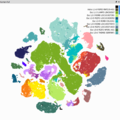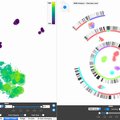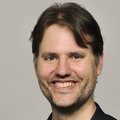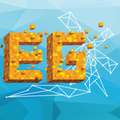Computer Graphics and Visualization
We work on many topics in rendering, visualization of (scientific) information and modelling of 3D objects. Our goal is to develop new algorithms to generate, represent, interpret, display and interact with data. In particular, complex and large data sets are in our focus, as they play an increasingly important role in many scientific, medical and engineering applications.
Our research currently concentrates on:
- Game Technology (Procedural Generation, Narrative Worlds, …)
- Geometry and Animation (Representations, Optimization, Simulation, …)
- Image processing (Computational photography, Neural Image Generation, …)
- Immersion, Interaction, and Perception (Virtual/Augmented Reality, Vision models, …)
- Rendering (Real-time, Offline, Predictive, Neural, …)
- Visualization (Data, Scientific, BioMedical Visualization, …)
We teach several courses and supervise student projects in these and related areas.




